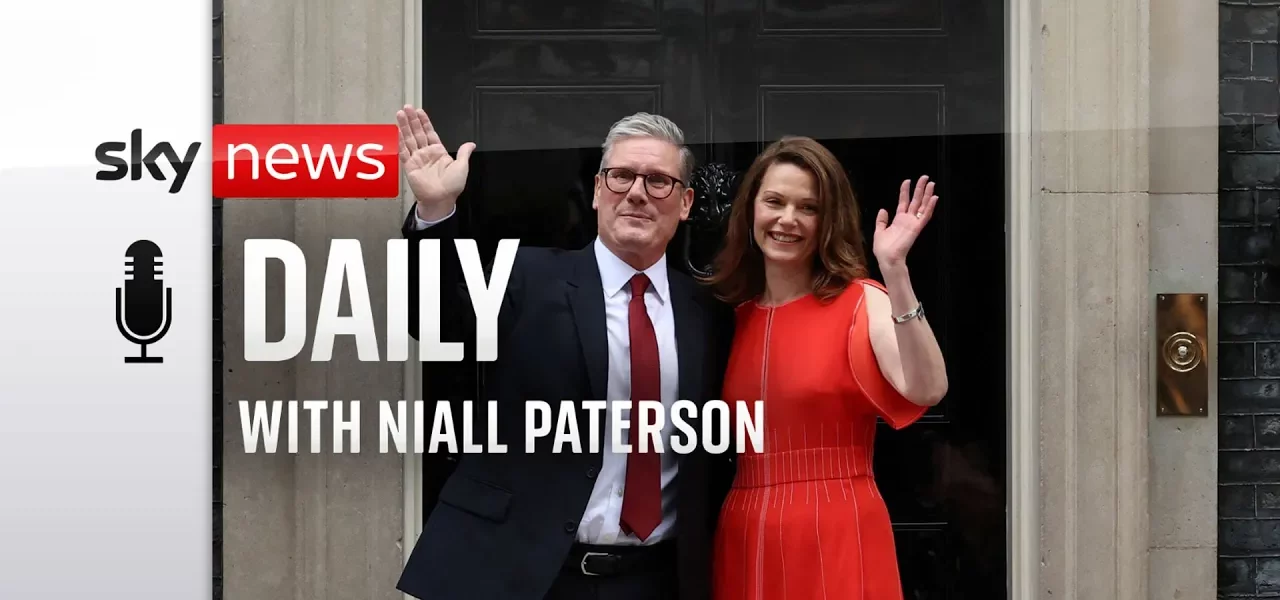The Labour Landslide: What’s Next for UK Politics?

The recent election has ushered in a new era in British politics with a significant Labour victory. In this article, we delve into the implications of this election result, the challenges ahead for the new government, and the shifting dynamics within UK politics.
Introduction
The recent UK election has resulted in a historic Labour landslide, marking a pivotal shift in the political landscape. Keir Starmer’s party has emerged with a substantial majority, leaving the Conservative Party in disarray. However, the low voter turnout and the rise of smaller parties signal a broader discontent with the current political system that the new government must navigate. In this article, we will explore the election results in detail, assess the implications for the Labour government, and examine the fate of the Conservative Party and other political players.
The Election Results: A Labour Victory
Understanding the Scale of the Victory
The Labour Party’s victory was not just significant in numbers; it represents a shift in voter sentiment. With a majority of 174 seats, Labour’s win reflects a 10.7% swing from the Conservatives. This election has produced the smallest combined vote for the two main parties, indicating a fragmentation of traditional party politics.
- Labour’s Majority: 174 seats
- Conservative’s Historical Losses
- Emergence of Smaller Parties
Voter Turnout and Discontent
Despite Labour’s significant win, the turnout was notably low, raising concerns about public engagement and dissatisfaction with the political process. As Keir Starmer takes office, he must address this discontent to build a more inclusive political environment.
The Future of the Labour Government
Challenges Ahead
Starmer’s government enters a complex political landscape filled with expectations and challenges. While a large majority provides a strong mandate, the electorate’s broader dissatisfaction must not be overlooked.
- Restoring Public Trust in Politics
- Addressing Voter Discontent
- Implementing Effective Policies
Policy Expectations
Despite the significant electoral victory, Starmer’s policies may not be as transformative as some might hope. His administration will need to balance ambitious reforms with the realities of governing a divided electorate.
The Conservative Party: A Time of Reckoning
Post-Election Landscape
The Conservative Party faces a daunting task in the wake of their electoral losses. Rishi Sunak’s leadership has been severely tested, and there are calls for a change in direction.
- Loss of Historical Strongholds
- Leadership Changes on the Horizon
- Potential Rebranding Efforts
Challenges Within the Party
As the party grapples with its identity, the emergence of fringe parties like Reform poses a new challenge. The Conservatives must navigate internal divisions while attempting to reconnect with disillusioned voters.
The Rise of Smaller Parties
Impact of Tactical Voting
The election saw a significant share of votes going to smaller parties, reflecting a shift in voter loyalty and dissatisfaction with the traditional two-party system. This trend indicates a growing appetite for alternative political voices in the UK.
Future of the Liberal Democrats and Other Parties
The Liberal Democrats have capitalized on this dissatisfaction, positioning themselves as a viable alternative to Labour and the Conservatives. Their increased presence in Parliament highlights the changing dynamics of British politics.
Conclusion
The recent election has set the stage for a transformative period in UK politics. With a Labour government at the helm, the challenges of low voter turnout and public dissatisfaction remain. As Keir Starmer navigates his new role, the implications for the Conservative Party and the rise of smaller parties will shape the future of political discourse in the UK. It is essential for the new government to engage with the electorate and address their concerns to create a more inclusive democracy. Stay tuned for further analysis on this evolving political landscape.
“`




